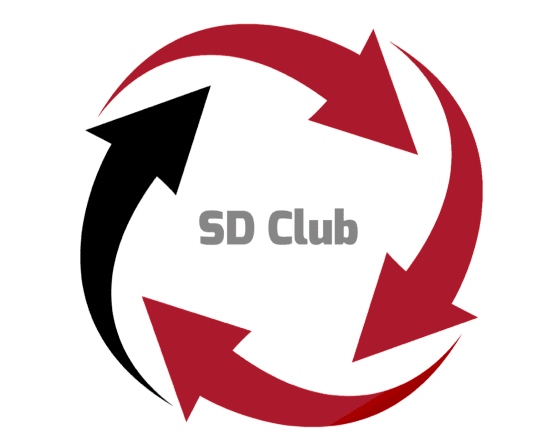WPI System Dynamics Peer Tutoring Session
Please join us online Friday, Oct 7th 10AM ET (Boston time. Here is a time converter).
In this Collective Learning Meeting (CLM), WPI System Dynamics will host a
Peer Tutoring Session
Peer Tutoring Sessions are open sessions where attendees network and discuss systems and simulation.
Please come to this CLM if you have questions about:
- Modeling and Analysis
- Research/Writing/Publishing
- Etc.
Or if you want to help others who may have questions.
We will not record this session but will take notes and share them. You can view the frequently asked questions (FAQ) from these sessions and more on our website.
If you are interested in presenting your work, please contact Christine Tang (ctang@wpi.edu).
Tentative Schedule
https://wp.wpi.edu/lcsap/events/collective-learning-meetings-clm/
Call-in details: https://lnkd.in/gdZGfH36
Urmila Mallick on “Transforming a Liability into an Asset: A System Dynamics Model for Free-Ranging Dog Population Management”
In this Collective Learning Meeting (CLM), WPI System Dynamics hosts Urmila Mallick (urmila.mallick@yale.edu) who will present:
Transforming a Liability into an Asset:
A System Dynamics Model for Free-Ranging Dog Population Management
Short Description: This presentation will discuss a customizable system dynamics model that was developed to propose a novel intervention for Indian free-ranging dogs (FRD), a population that tends to resist conventional management strategies. We intend to improve our model to better subsume population dynamics, funding avenues, and innovative strategies to maintain FRD welfare, provide societal benefits, and compare intervention costs.
Questions for the Audience:
1) I am interested to know how time-lags can be improved in the model, especially when interventions are applied and the effects must pass through multiple modules.
2) How can we additionally include modules on human awareness and other non-numerical variables that change with FRD population management?
3) How can we improve, change, or add to the parameters in the model to make it more realistic for users?
Biography: Urmila Basu Mallick is a 2021 graduate of Worcester Polytechnic Institute with majors in Biology/Biotechnology and Environmental/Sustainability Studies and a minor in Social Entrepreneurship. She has been an REU student and visiting undergraduate affiliated with Harvard University since 2020, where her research in Dr. Colleen Cavanaugh’s lab involved metagenomics and metatranscriptomics of the human oral microbiome. She received the Women’s Young Investigator Fellowship to present her undergraduate research on Indian stray dog management, conducted under the guidance of Dr. Marja Bakermans and Dr. Khalid Saeed, at the 2020 Society for Conservation Biology- North American Congress. Urmila was awarded an NSF Graduate Research Fellowship in 2021 and joined Yale University’s Masters in Environmental Science program at the School of the Environment this fall. She is currently studying the effects of wildlife and livestock on soil carbon storage in Botswana, under the guidance of Dr. Oswald Schmitz.
We will record this presentation and post to the WPI System Dynamics Club YouTube Channel.
Call-in Details: https://bit.ly/CLM-2021-11-19
Ivan Taylor presents “SDS One-on-One Mentorship Program”
In this Collective Learning Meeting (CLM), WPI System Dynamics hosts Ivan Taylor (ivan@policydynamics.ca) who will present:
SDS One-on-One Mentorship Program
Short Description: Discuss the benefits of the SDS Mentorship program. How it works and how to join as a mentor or as a mentee.
Questions for the Audience: Would they find the one-on-one mentorship program usual to them in reaching their goals in SD?
Biography: www.policydynamics.ca
We will record this presentation and post to the WPI System Dynamics Club YouTube Channel.
Call-in Details: https://bit.ly/CLM-2021-09-17
Moving Beyond the Threshold of System Dynamics: Thoughts for New Practitioners
I’ve heard students and colleagues say that learning system dynamics transformed their thinking–it gave them ways to understand complex problems in their field from a fresh perspective. “I can’t think any other way,” they’ll say. Practices like system dynamics are considered a threshold concept. Threshold concepts have been described by Meyers and Land (2008) as:
- Transformative – it changes the way a student views a discipline.
- Troublesome – especially when the concepts are counter-intuitive or conceptually difficult.
- Irreversible – difficult to unlearn.
- Integrative – once learned, bring together previously unrelated concepts.
- Reconstituted – shifts learner subjectivity in oscillations/wrestling with conceptual domains, often depicted by messy journeys back and forth and across conceptual terrains (Cousin, 2006).
- Liminal – leaves the learner in a suspended state of partial understanding (“stuck places”), in which understanding is based on mimicry or a lack of authenticity–it’s an uncomfortable shift that invokes questions of identity and or paradoxically a sense of loss. Similar to adolescence, one does not feel that they have arrived–not yet adults and no longer children.
Those of us who have started this journey know there is no end to learning and a sense of imposter syndrome that comes with trying. It’s not something you simply do over the summer and get your stamp of authenticity. Becoming a system dynamicist is a commitment to lifelong learning. Practicing. Feeling inadequate. The skill decay rate is high. And yet, the insights are transformational.
To those of us who are starting this journey of learning, we must wrestle with this liminality. I suspect that few of us feel that we have “made it” to the end of system dynamics learning. When compared to some well-established fields, such as physics or biology, ours is relatively new–a mere child in the many disciplines of methodological inquiry. There are many questions to be pursued and innovations to be encountered. It is intimidating to put oneself out there to grow, so with that, I offer some ideas that I’ve done or seen others do in the field:
- Seek mentorship. Find people whose work you admire, read their papers/projects and talk to them frequently. Ask questions. Take notes.
- Attend SD conferences. The best way to learn a new language is to be immersed in the field and everyday language: the annual conference. There are few places where you don’t have to explain causal loop diagrams or feedback (not in reference to a suggestion) to have a deeper conversation on practice.
- Find peers and ask “dumb” questions together. At my first SD conference, peers sat me down to conduct a gentle intervention prior to my first presentation. They said, “Saras, it’s System. Dynamics. Not SystemS Dynamics. One system. Many dynamics.” Novice crisis averted (somewhat). Thanks, Jill and Mary Jo!
- Read the classics and model them. The System Dynamics Review is a great place to start going deeper. Additionally, reading seminal texts and rebuilding models can help hone your skills. It’s especially illuminating to read “conversations” between folks in the field to understand what debates have persisted over time.
Are you at the threshold? Reach out and lean into this space of learning. For more seasoned practitioners, what worked for you? Use the comments below to share your wisdom!


